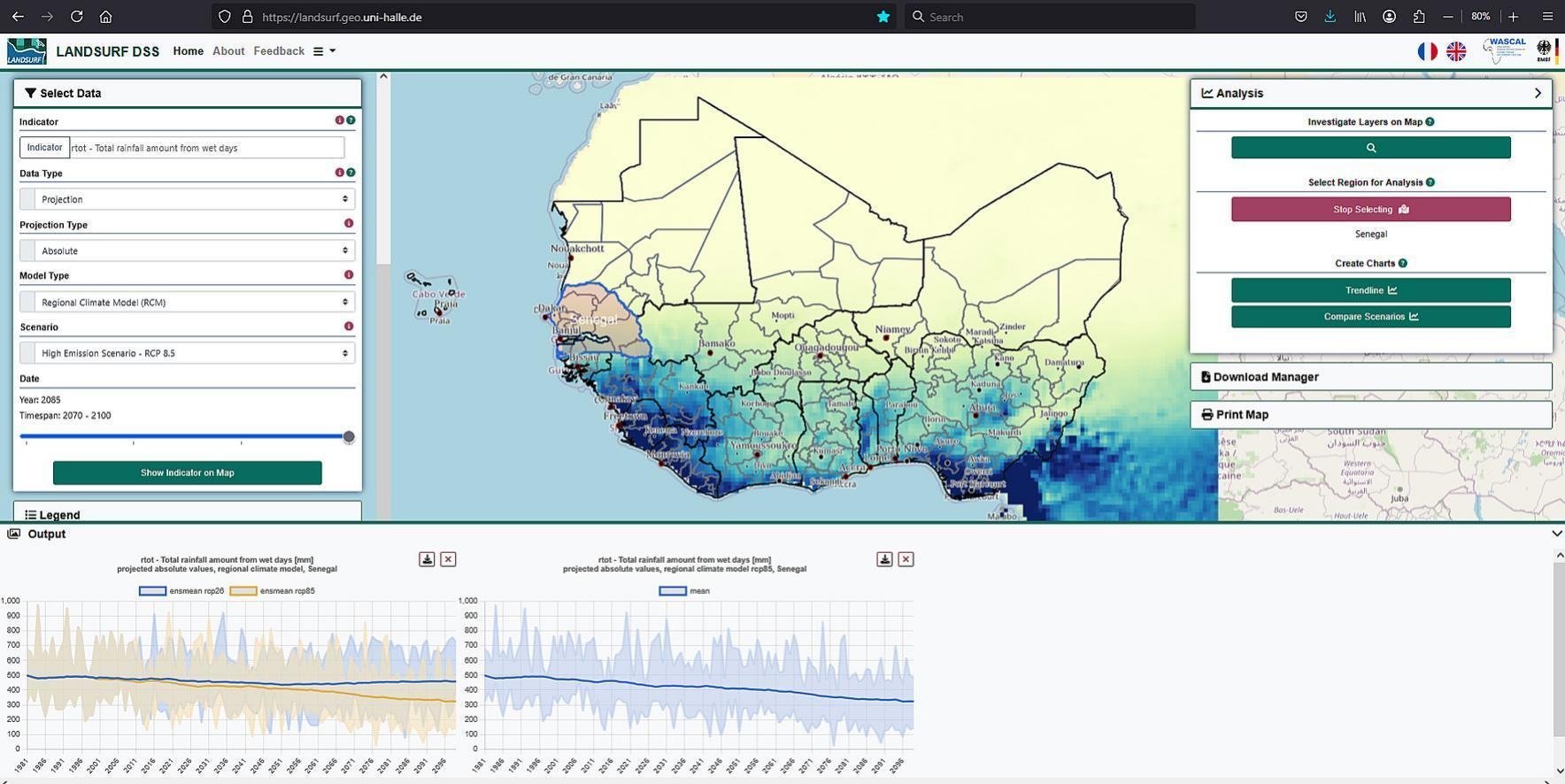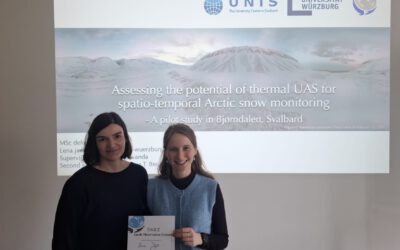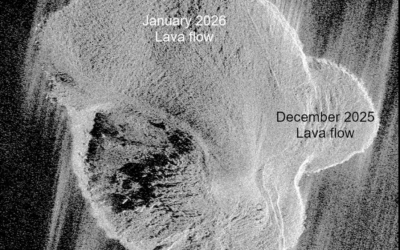We are excited to announce the publication of a groundbreaking study titled “A Spatial Decision Support System for Climate-Adapted Agriculture Designed with and for Stakeholders in West Africa“ in the journal Climate Services. This research introduces a user-friendly Spatial Decision Support System (SDSS) developed to empower local stakeholders in West Africa to tackle the challenges posed by climate change. The work has been conducted by the LANDSURF project team, funded by the BMBF under the grant number 01LG2080A.
What’s the SDSS About?
The SDSS is a web-based tool designed to provide farmers, policymakers, NGOs, and researchers with easy access to climate, crop, and land-use data. It integrates observational data, high-resolution climate models, and remote sensing information to offer 28 practical indicators, such as rainfall patterns, irrigation needs, and vegetation health. The system is free, accessible in English and French, and compatible with smartphones, ensuring inclusivity for diverse users.
Why Is This Important?
West Africa’s agriculture is highly vulnerable to extreme weather events like droughts and heatwaves. The SDSS bridges the gap between complex scientific data and actionable insights, enabling stakeholders to make informed decisions about crop management, water use, and climate adaptation strategies. For example, farmers can assess future irrigation needs, while planners can evaluate the impact of droughts and heatwaves on regional water resources.
What’s Next?
The SDSS will continue to evolve, with plans to enhance data quality, incorporate next-generation climate models, and expand indicators to include socio-economic and health-related data. This tool represents a significant step toward building resilience in agriculture and other sectors across West Africa.
Explore the full study and learn more about the SDSS at LANDSURF Portal.
This research is a testament to the power of collaboration between scientists and stakeholders, paving the way for sustainable development in one of the world’s most climate-vulnerable regions.









